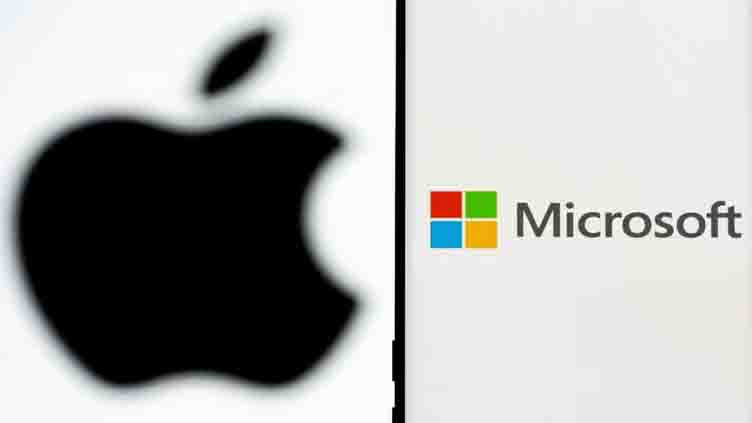BRUSSELS — Apple has been granted an exemption for its iMessage and Microsoft for its Bing search engine from new EU tech rules after the companies convinced antitrust regulators that their services are not gateways for businesses to reach end users.
The European Union’s Digital Markets Act (DMA), which comes into force in three weeks, requires Microsoft, Apple, Google Alphabet, Amazon, Meta Platforms and ByteDance to allow third-party apps or app stores on their platforms to make it easier for people go to rivals.
Companies are also prohibited from favoring their services over competitors.
After a five-month investigation, the European Commission found that iMessage, Bing, Edge and Microsoft Advertising “do not qualify as concierge services,” the EU executive said in a statement.
The commission said Apple’s App Store, the iOS operating system and the Safari browser would continue to be classified as gatekeepers, as would Microsoft’s Linkedin social network and the Windows operating system.
It carried out a “thorough assessment of all arguments, taking into account the input of relevant stakeholders”, the Commission said, without giving details of the companies’ arguments.
Apple has said that iMessage usage is negligible, even on its devices, compared to rival messaging services in the EU, and that iMessage is not an important channel for businesses to reach users in the bloc.
“Consumers today have access to a wide variety of messaging apps and often use many of them at once, reflecting how easy it is to switch between them,” an Apple spokesperson said.
Microsoft has said that Bing, Edge and Microsoft Advertising act as challengers in the market and are relatively small-scale, meaning they are not important gateways for business users.
Also read: Kaspersky’s Antidrone Solution capable of neutralizing civil drones
“We will continue to engage with the Commission and the industry as a whole to ensure that Microsoft’s other designated platforms are fully compliant with the DMA,” a Microsoft spokesperson said.
Lazar Radic, an antitrust expert at the International Center for Law and Economics, said: “It’s a good sign that the Commission has taken into account the realities of the market, rather than just slapping the ‘gatekeeper’ label on iMessage because it meets certain quantitative thresholds.
“This suggests that the Commission is able to avoid the temptation of excessive regulation.”
However, the Coalition for Open Digital Ecosystems (CODE), whose members include Google, Meta Platforms and Qualcomm, disagreed with the Commission’s decision to exempt services such as iMessage.
“Today’s surprising decision undermines the objectives of the DMA as well as its potential to improve choice and competitiveness for all Europeans,” it said in a statement.







